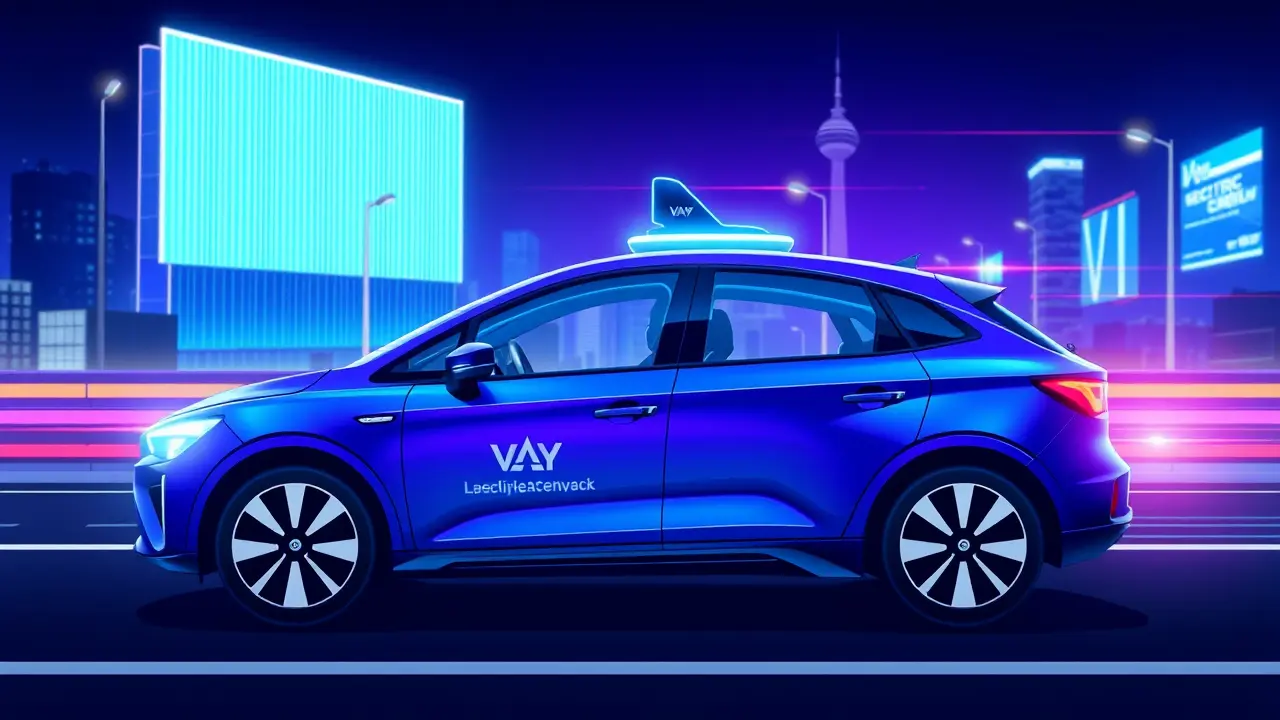
Otherauto & mobilityAutonomous Cars
Grab to Invest Up to $410M in Remote Driving Startup Vay.
ET
Ethan Brown
7 hours ago7 min read4 comments
In a move that signals a seismic shift in the future of urban mobility and the gig economy, Singapore's super-app titan Grab has announced a monumental investment of up to $410 million into Vay, a Berlin-based pioneer in teledriving technology. This isn't just another corporate funding round; it's a strategic bet on a future where cars drive themselves remotely, a concept that Vay is bringing to market not with sci-fi-level full autonomy, but with a pragmatic, human-in-the-loop approach.For Grab, a company that built its empire on connecting drivers with passengers and deliveries, this investment is a direct hedge against the existential threats and opportunities presented by automation. Imagine a world where a single operator, sitting in a control center miles away, can remotely pilot multiple electric vehicles throughout a city.This is Vay's core offering: a rental service where your car arrives driven remotely, you take over for your journey, and then it's driven away remotely by an operator to its next customer. It’s a clever end-run around the immense technological and regulatory hurdles of fully driverless cars, offering a near-term path to reducing the physical driver from the equation.The financial mechanics of this deal are telling. The commitment of 'up to' $410 million likely involves an initial tranche with subsequent performance-based milestones, a common structure in high-risk, high-reward tech ventures.For Grab, which has been on a path toward profitability, deploying capital of this magnitude underscores a conviction that teledriving will be a cornerstone of its next growth phase. It’s a classic Warren Buffett-esque lesson in investing in the future you believe in, even if the market hasn't fully caught up.The implications for Grab's business model are profound. The largest cost center for ride-hailing and delivery platforms is the human driver.By gradually integrating Vay's teledriven fleet, Grab could drastically lower operational costs, improve unit economics, and offer more competitive pricing, all while creating a new class of 'remote driver' jobs. This could be the key to unlocking sustainable profitability across Southeast Asia's competitive and price-sensitive markets.For Vay, this partnership is a rocket booster. The startup, founded by veterans of the automotive and tech worlds, now gains not just capital, but a massive, real-world deployment partner with deep operational expertise in complex urban environments.Grab's data on traffic patterns, customer demand, and fleet management is an invaluable asset that will accelerate Vay's technology refinement and scaling efforts. However, the road ahead is fraught with challenges that any savvy investor or entrepreneur would be wise to consider.Regulatory approval is the most significant hurdle. Convincing transportation authorities in dozens of countries that a car with no one inside, controlled over a cellular network, is safe will require extensive testing and robust fail-safe systems.The specter of latency—the delay between the operator's command and the car's reaction—is a technical challenge that Vay must solve with near-perfect reliability. Public perception is another battle; people need to trust a screen more than a steering wheel.Furthermore, this investment places Grab in direct competition with other mobility giants like Uber and Didi, who are also pouring billions into autonomous driving research. While Vay's teledriving is a different technological path, the end goal is similar: a cheaper, more efficient mobility service.This deal is a bold declaration that Grab is not content to be a follower and is willing to back a potentially disruptive alternative. From a personal finance and startup perspective, this is a masterclass in strategic allocation.Grab isn't just throwing money at a trend; it's vertically integrating a technology that could define its core business for the next decade. For aspiring entrepreneurs, it’s a reminder that sometimes the most innovative solutions aren't about achieving full automation overnight, but about finding the clever, incremental steps that bridge the gap between today's reality and tomorrow's vision. The success of this gamble will be watched closely, as it could redefine not just two companies, but the very fabric of how we move through our cities.
#Vay
#Grab
#remote driving
#investment
#mobility startups
#autonomous vehicles
#featured
Stay Informed. Act Smarter.
Get weekly highlights, major headlines, and expert insights — then put your knowledge to work in our live prediction markets.
© 2025 Outpoll Service LTD. All rights reserved.